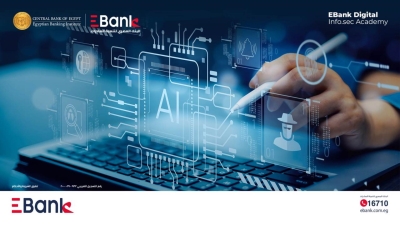Banks without branches! Opportunities and challenges before the launch of Egypt's first digital bank

In the midst of the global digital transformation, the domestic banking sector has recently experienced a qualitative boom with the spread of the term digital banking, which reflects a radical shift in the way in which sophisticated and accessible financial and banking services are provided, and with increasing reliance on technology in various areas of life, these banks have emerged as an innovative option combining speed, efficiency, and low cost
This step is in response to the changing needs of customers, who are looking for flexible banking solutions delivered remotely and without the need to visit traditional branches. In this context, digital banks are an extension of the banking sector's trend towards digital transformation and enhancing financial inclusion, placing them at the forefront of the concerns of banks and financial institutions locally and globally.
Digital banks mean financial institutions that provide all their banking services online or through smartphone applications, without the need for physical branches, digital banks rely on modern technology to provide a fast, easy and secure banking experience, and it is a digital transformation loop that can change the face of the Egyptian economy
Egypt is taking tireless steps in the field of digital banking. The Board of Directors of the Central Bank of Egypt announced last May that it had approved the granting of initial approval to Misr Digital Innovation to establish the first digital bank in Egypt "One Bank" at a cost of about 3 billion pounds to date, which will be launched early next year.
Digital services have grown remarkably, with the number of banking internet users in Egypt reaching about 14.4 million according to the Central Bank's Financial Technology Perspective Report, while the number of e-portfolio accounts reached about 47 million in 2024 according to the latest data released
The latest Financial Inclusion Report showed that the number of citizens holding a financial transactions account rose to 48.1 million citizens by 71.5% of the total 67.3 million citizens entitled to open accounts in the 16-year age group and above.
This improvement reflects the efforts of the Government and the Central Bank to promote financial inclusion by launching initiatives such as e-portfolio support, digital transformation of banks, and expansion of bank branch networks to reach rural and remote areas











